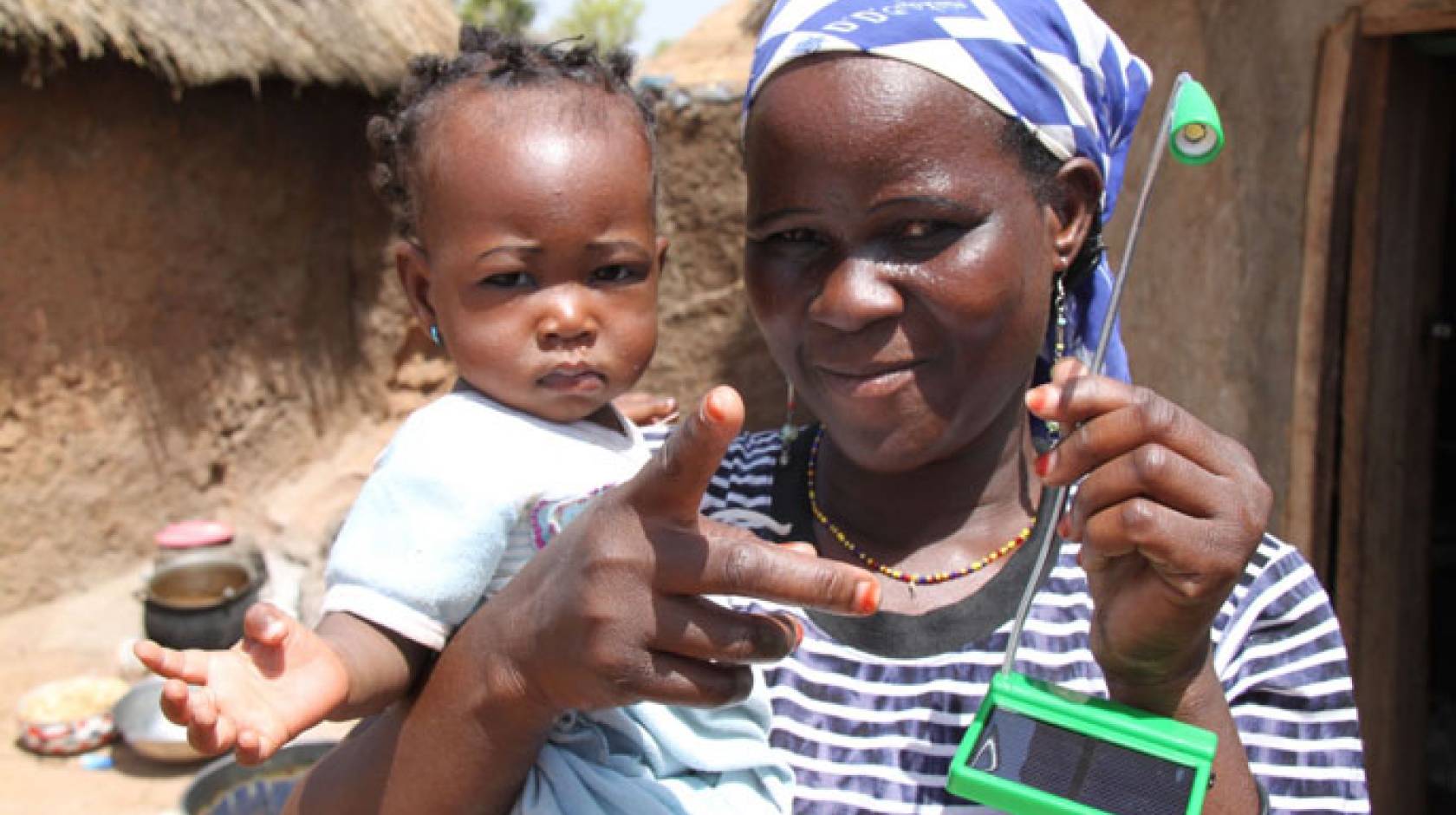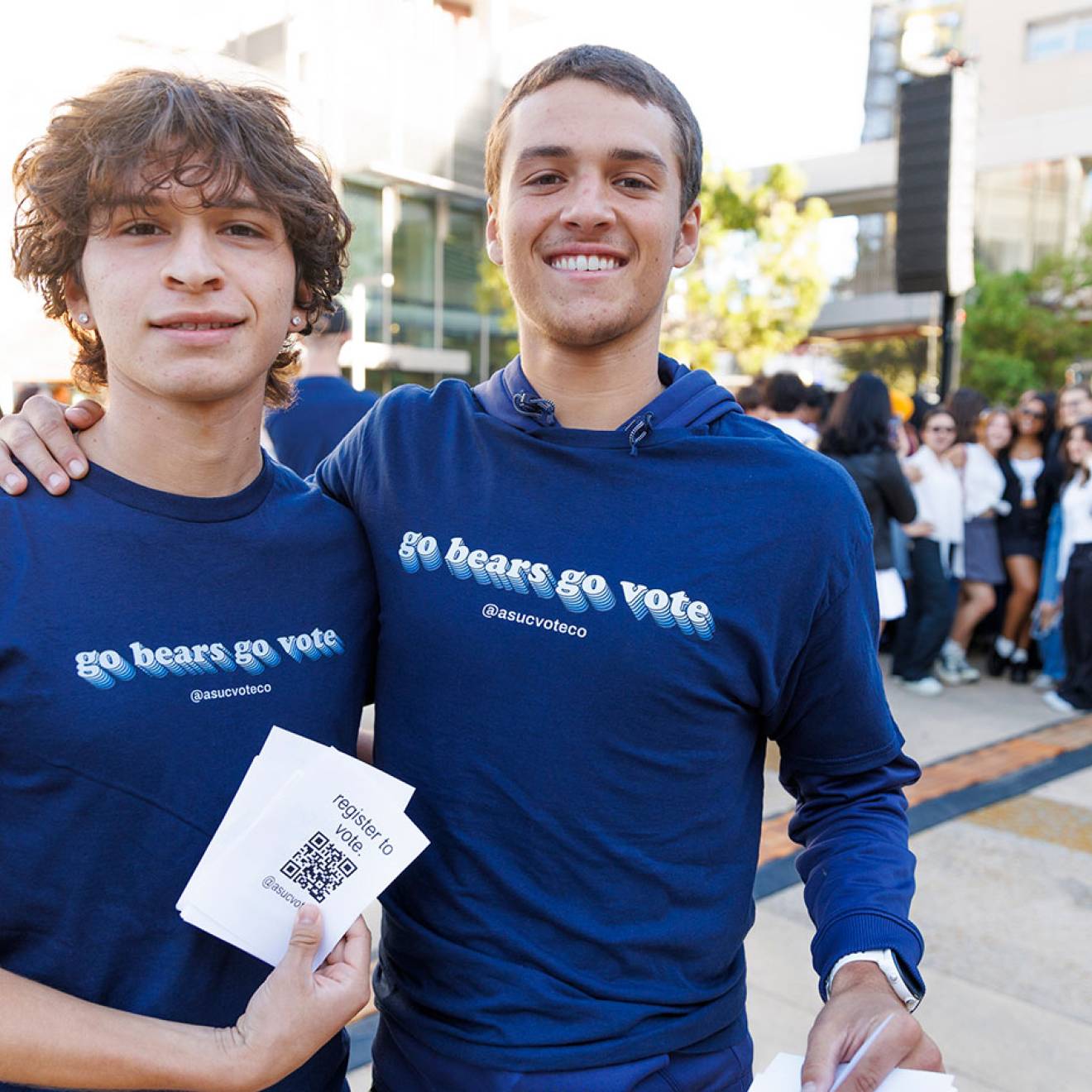Shelly Leachman, UC Santa Barbara

Most of them have come on foot.
Trekking through hills and across rivers from their home country and into Bangladesh, some 600,000 Rohingya refugees have fled Myanmar in recent months, seeking respite from violence and persecution.
Many of them are women and children.
When the sun descends, shrouding in darkness the sprawling refugee camps they now call home, new dangers arise — unseen terrain, animals, other people. A little light goes a long way for security, not to mention for homework, cooking, even childcare.

Credit: Courtesy Unite to Light
For Sabekun, who at 25 weeks pregnant walked seven days before arriving at Kutupalong Refugee Camp, a simple lamp could help ensure safe delivery of her baby. And a lamp she will have, thanks to a UC Santa Barbara-born endeavor to provide solar lights to places and populations in dire need.
Unite to Light, a nonprofit founded by John Bowers, a professor of engineering at UC Santa Barbara and director of the campus’s Institute for Energy Efficiency, today will ship 9,000 solar lights to Bangladesh for Rohingya refugees. In distributing the lamps, the tandem effort with RTM International, a Bangladesh-based NGO, and the United Nations Population Fund (UNFPA) will prioritize midwives, pregnant women and new mothers.
“Unite to Light is very fortunate to work with our partner organizations to send lights to those who need them the most,” said Bowers, who holds the Fred Kavli Chair in Nanotechnology — and who also created the solar-powered LED devices. “They have the connections on the ground to ensure that the lights reach those who really need them.”
Spreading light

Credit: Courtesy Unite to Light
RTM purchased the first 8,000 solar lights for the Rohingya refugees in Bangladesh. Unite to Light itself is donating an additional 1,000 through its “buy one, give one” program, and direct donations.
“Unite to Light is focused on getting light to those who could not otherwise afford it: children learning to read and study after dark, midwives and health clinics and disaster response,” said Megan Birney, executive director of Unite to Light. “Supplying solar lights to midwives, refugees and new mothers falls squarely into our mission of providing tools for those in need so that they may have a better opportunity to survive and thrive.”
By all accounts, this particular tool is most welcome and deeply appreciated.
On receiving a Clean Delivery Kit — solar light included — after a prenatal checkup at a camp-based health facility, Sabekun told a midwife, “I felt so afraid and uncertain this morning, but now I feel more at peace. I feel reassured, I’m glad I came.”
“Solar lights have been translated into smiles over the faces of the refugees,” affirmed Bangladesh midwife Tania Akter, who is working in the refugee camps.
By the close of 2017, Unite to Light in total will have shipped 21,000 solar lamps this year. The organization since its founding in 2011 has distributed over 90,000 lights to 65 countries, including Ghana, South Africa, Haiti and Peru.
More recently, a U.S. territory has also been on the recipients list. That’s Puerto Rico — devastated by Hurricane Maria in September, and still largely without power — where Unite to Light sent 1,550 solar lights shortly after the disaster. They’ll send another 1,000 by the end of December.
The group’s Puerto Rico outreach is being done in partnership with Direct Relief, which supplies 62 community clinics across the island. The lights are being distributed throughout those clinics, going to medical staff and patients, in communities that remain without electricity, according to Birney.
“What I took for granted before I worked at Unite to Light was the extent to which a person’s life stops when the sun goes down, if they don’t have access to light,” Birney added. “This is especially true for vulnerable populations: women, children, elderly. When the sun goes down, their day ends. A simple solar light changes all that. They now have hours of extra time to do homework, fetch water, visit with family or make dinner.”

